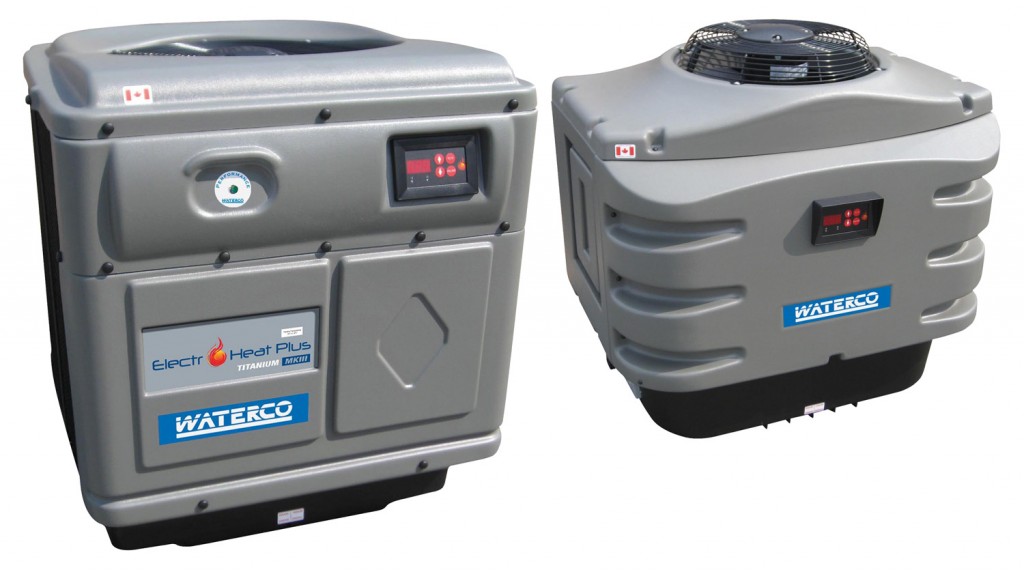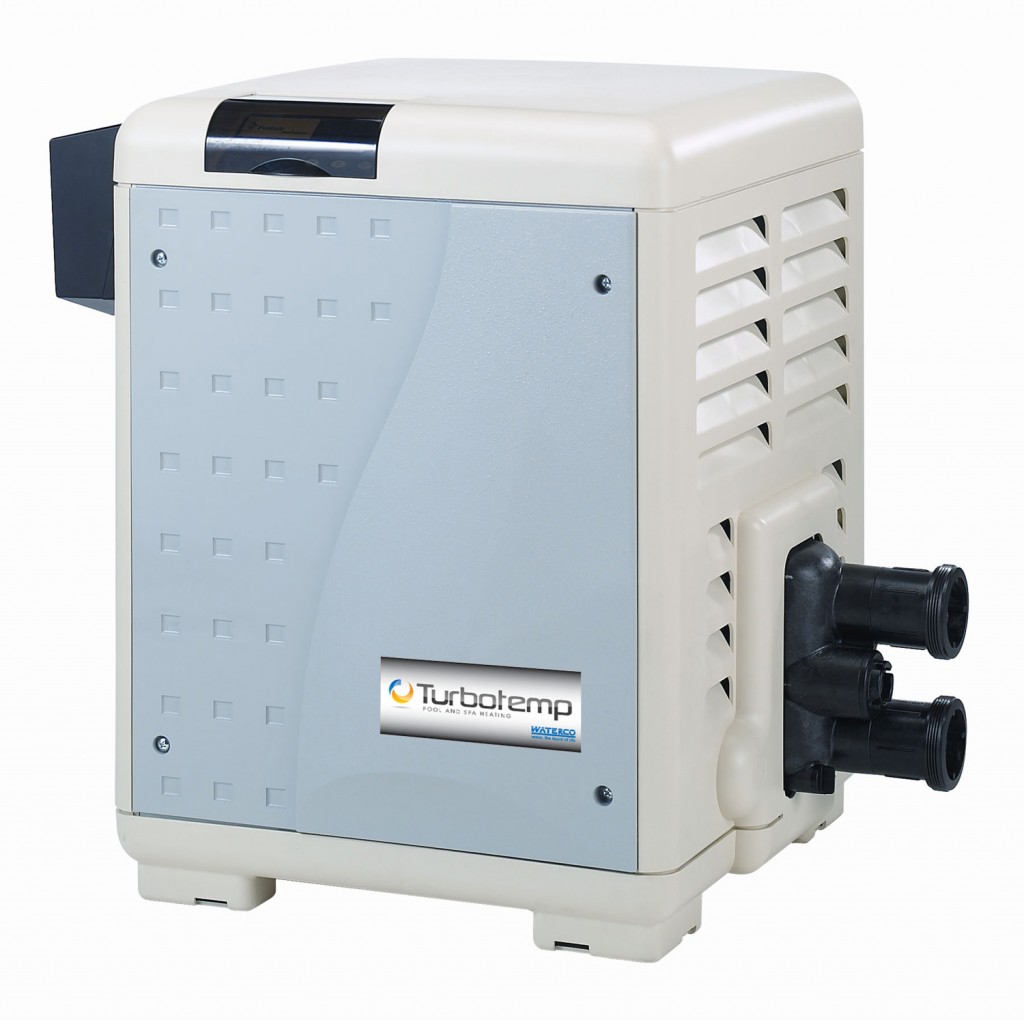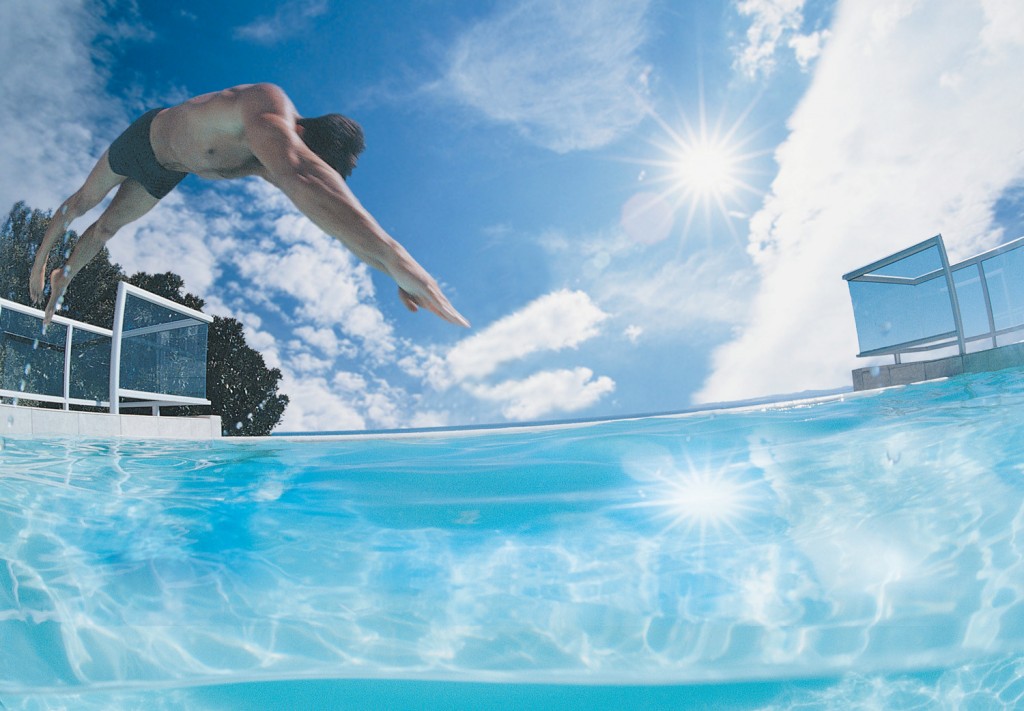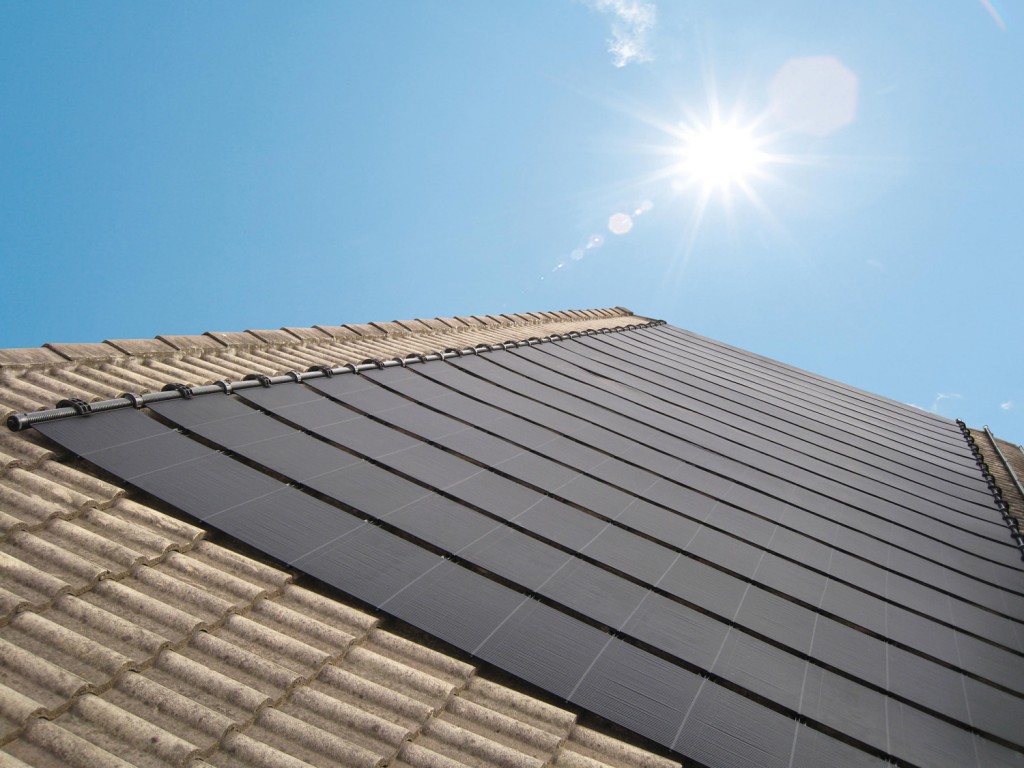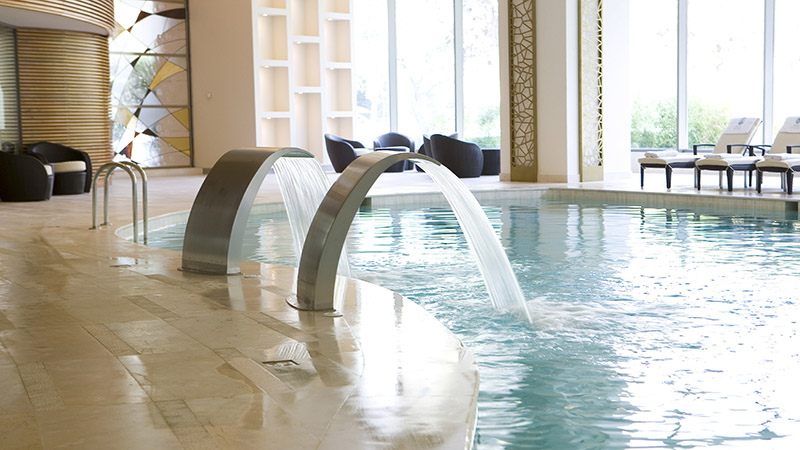Aussies are renowned for our love of the water, and so most of us still use our pools even when the blue skies of summer turn to grey. Today, pool heating is becoming more commonplace and affordable for every household. Let’s take a look at what your options are for pool heating, so you can get more enjoyment out of your pool this winter
Heat pumps
Reliable, highly efficient and economical to run, heat pumps extract heat from the air (similar to a reverse cycle air conditioner), and use that heat to produce hot water.
Compared to gas and electric, heat pumps use just a fraction of the energy to generate the same amount of heat. Although initially heat pumps take longer than gas heaters to warm up the pool or spa water, they are much more economical and will then maintain the heating as well as gas heaters.
Benefits of heat pumps include their high energy efficiency and lower running costs. As a guide, you can save up to 80% over LPG and 50% over natural gas fuelled heaters. And the best thing about heat pump pool heaters is that they operate regardless of the weather.
One of the disadvantages of this type of system is that they can lose their high energy efficiency slightly once the weather really cools down, as the pump has to work harder to heat the water against the outside temperature. However, in Australia our climate does not vary that wildly all year round, so unless you live in an area that does experience very low winter temperature, this is not a concern.
Another thing to consider is they can be expensive to initially install, but the low running costs will make up for this in no time at all.
Gas
Gas heaters are the fastest method for heating your pool, providing a comfortable temperature for swimming on demand. Gas heating systems use natural gas or LPG, heating the pool water by drawing it into a heating unit and filter.
A key advantage of a gas heater is that it is the most simple to use out of the three types, which could explain its continued popularity. It can also heat pool water much faster than a solar or heat pump system can, and will heat the pool water up to 40oC, no matter how cold the climate is.
Selecting the right size gas heater depends on three key factors:
- The amount of water to be heated;
- How long you are prepared to wait for your pool to heat up;
- Your preferred swimming temperature.
Many offer dual controls which are ideal for spas, which are heated to higher temperatures than pools.
However, no system is without some drawbacks; gas could be considered inefficient compared to heat pumps and solar heating systems, but this depends largely on the climate you live in, so ask the friendly staff at your local Pool expert whether a gas heater is suited to your area or not.
Another disadvantage is that gas heaters can cost more to run, so are best suited to a pool that does not get used often during winter. This system also lacks longevity, compared to the other types; a properly installed and maintained system may only last five years.
Solar
Undeniably the most environmentally friendly option of all, solar pool heaters operate by using the energy of the sun that is absorbed through solar panels that are installed on the roof of the home. The pool water is then run through a collector that heats it up before returning it to the pool.
Solar systems are a low cost method to heat up your pool and have virtually no operating costs, just the cost of electricity to pump the pool water through the solar absorber on the roof. Solar heating systems are also simple to maintain.
The amount of heat absorbed and the subsequent increase in temperature depends on three key criteria:
- The size or area for the collector and the number of tubes per square metre;
- The location of the collector;
- The quality of the collector system.
Ultimately, the biggest influence is the exposure to the sun. This gives this system the advantage of being very cost effective in terms of running costs; savings that can keep coming for the whole 20 years a properly installed system can last.
However, if you live in a climate that does not get a great deal of sunlight or a very shady suburb, then a solar system is not a viable option. Installation can also be costly; however some government rebates are available, so check on your local council or state government’s website.
For more information on Waterco’s pool heating range, click here.
For more information
Waterco 36 South Street, Rydalmere NSW 2116
Phone 02 9898 8686
Website waterco.com
